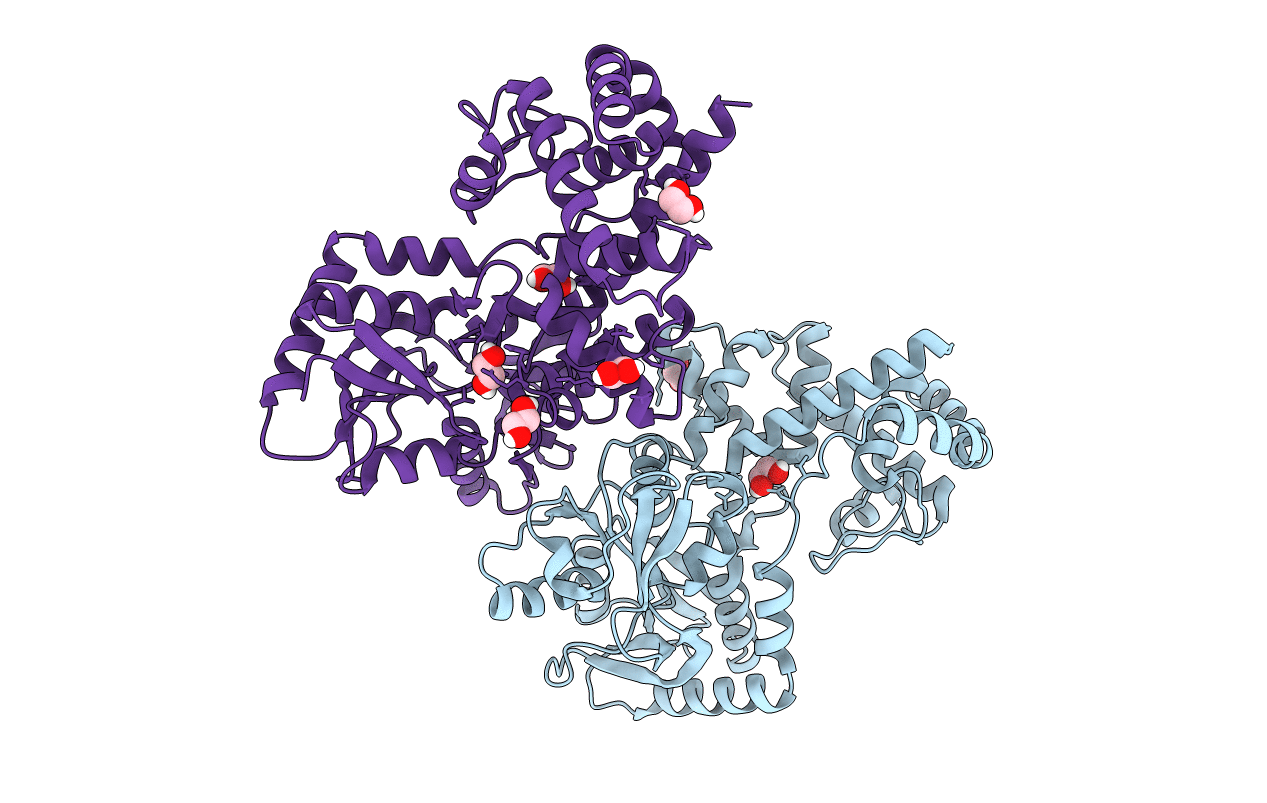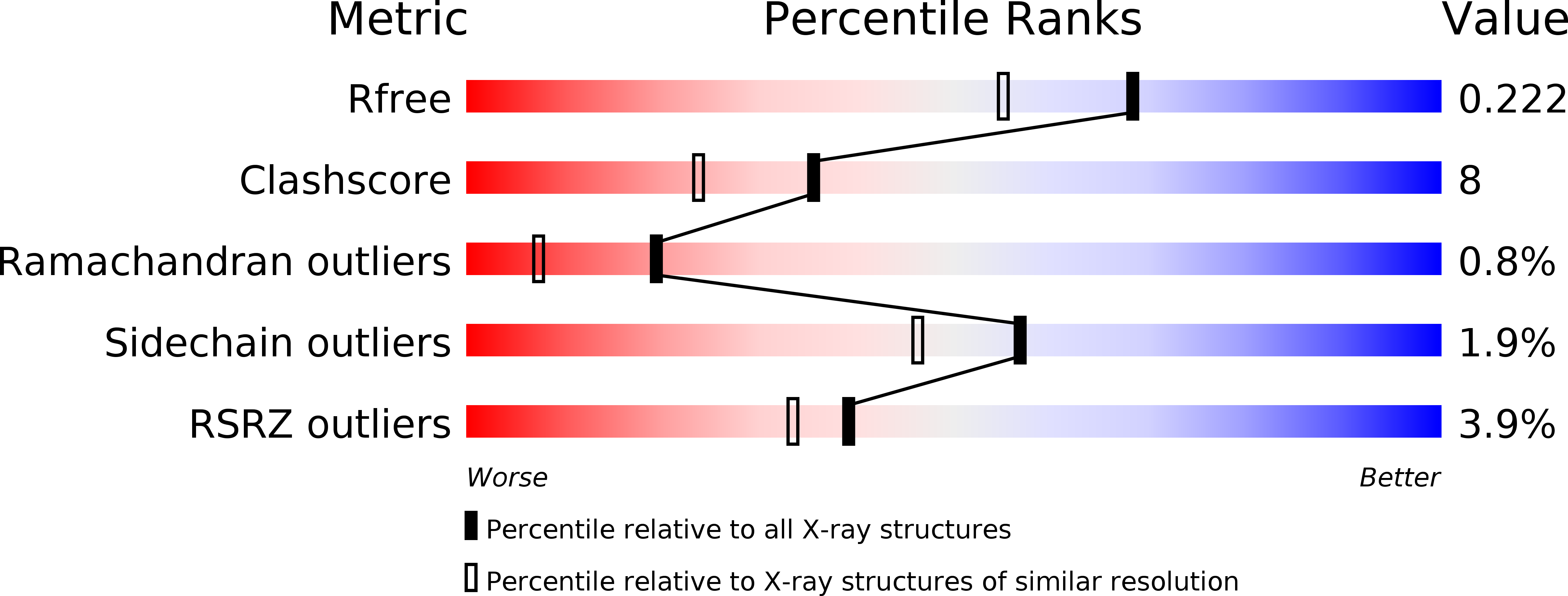
Deposition Date
2015-06-23
Release Date
2016-10-12
Last Version Date
2024-11-20
Entry Detail
PDB ID:
5A5X
Keywords:
Title:
Crystal Structure of Se-Met MltF from Pseudomonas aeruginosa
Biological Source:
Source Organism(s):
PSEUDOMONAS AERUGINOSA PAO1 (Taxon ID: 208964)
Method Details:
Experimental Method:
Resolution:
1.80 Å
R-Value Free:
0.21
R-Value Work:
0.17
R-Value Observed:
0.18
Space Group:
P 21 21 2


